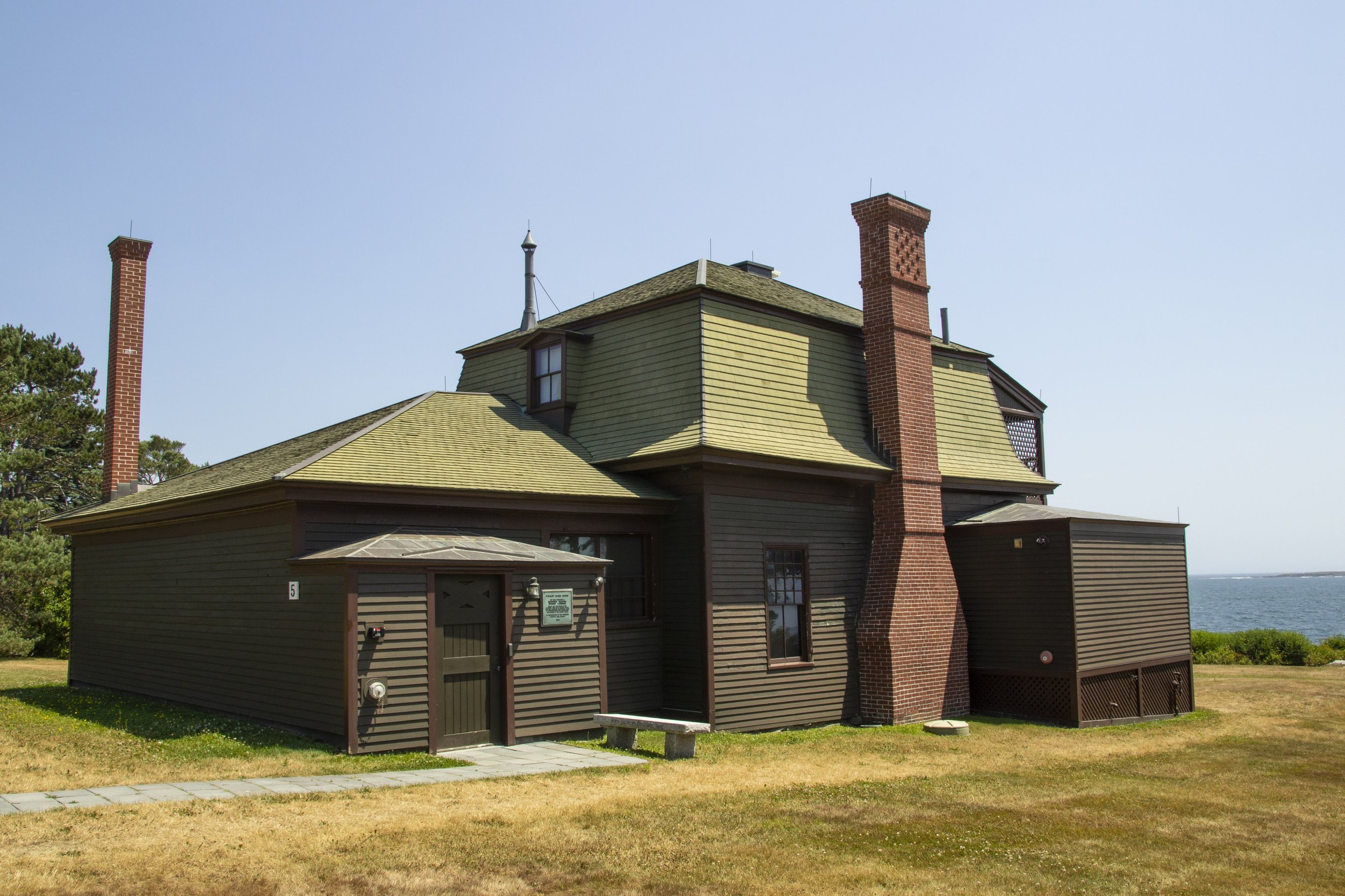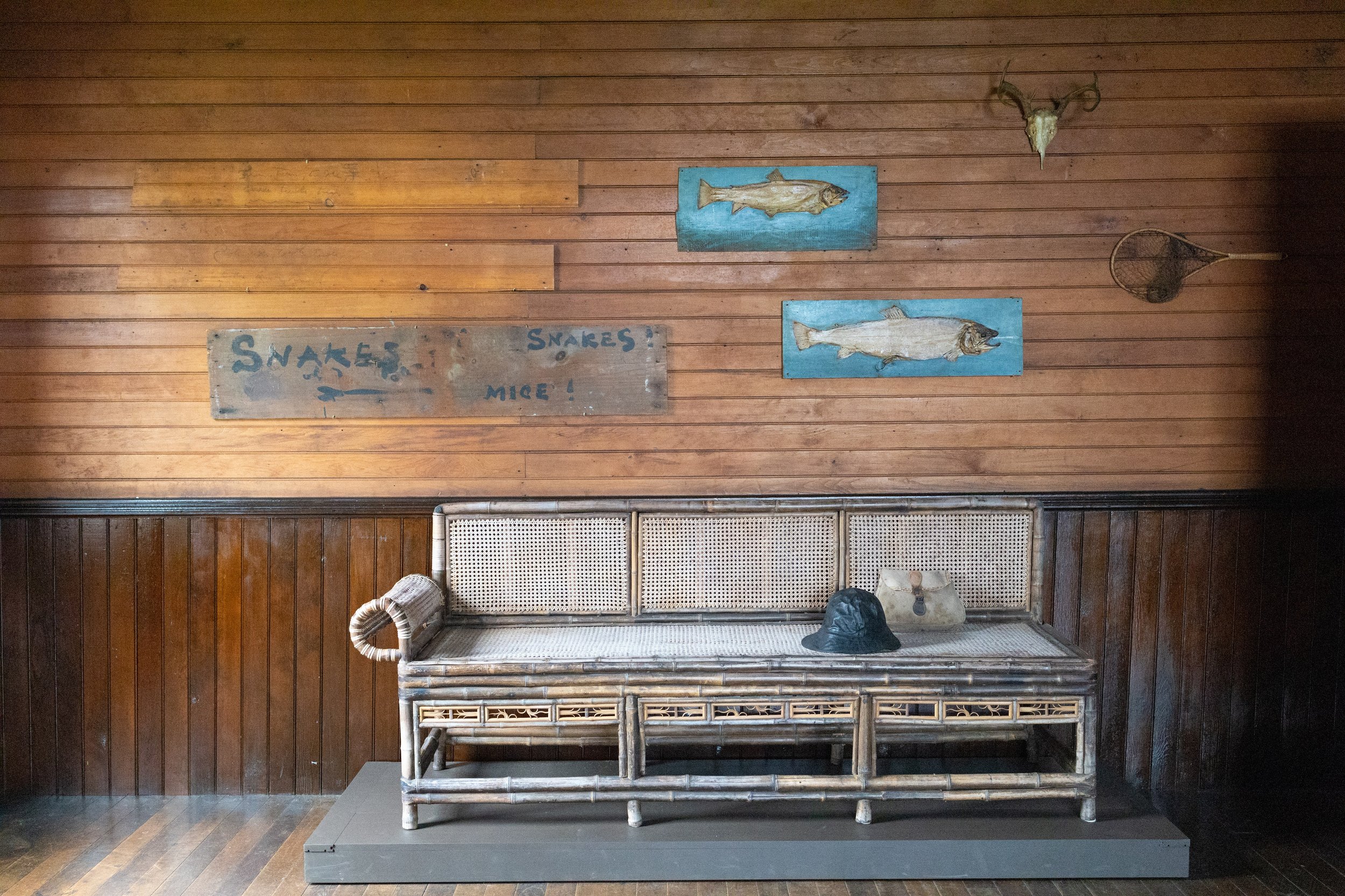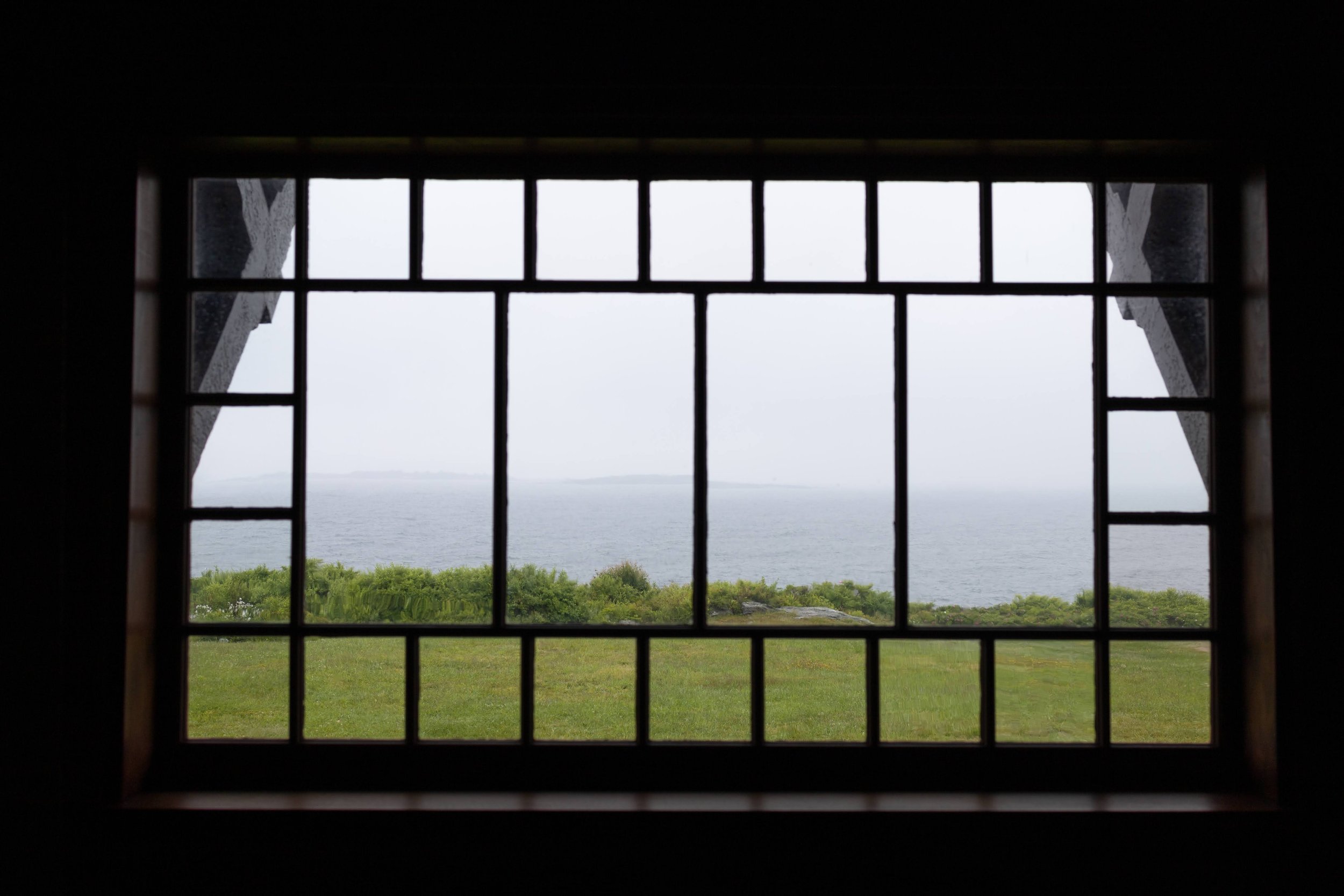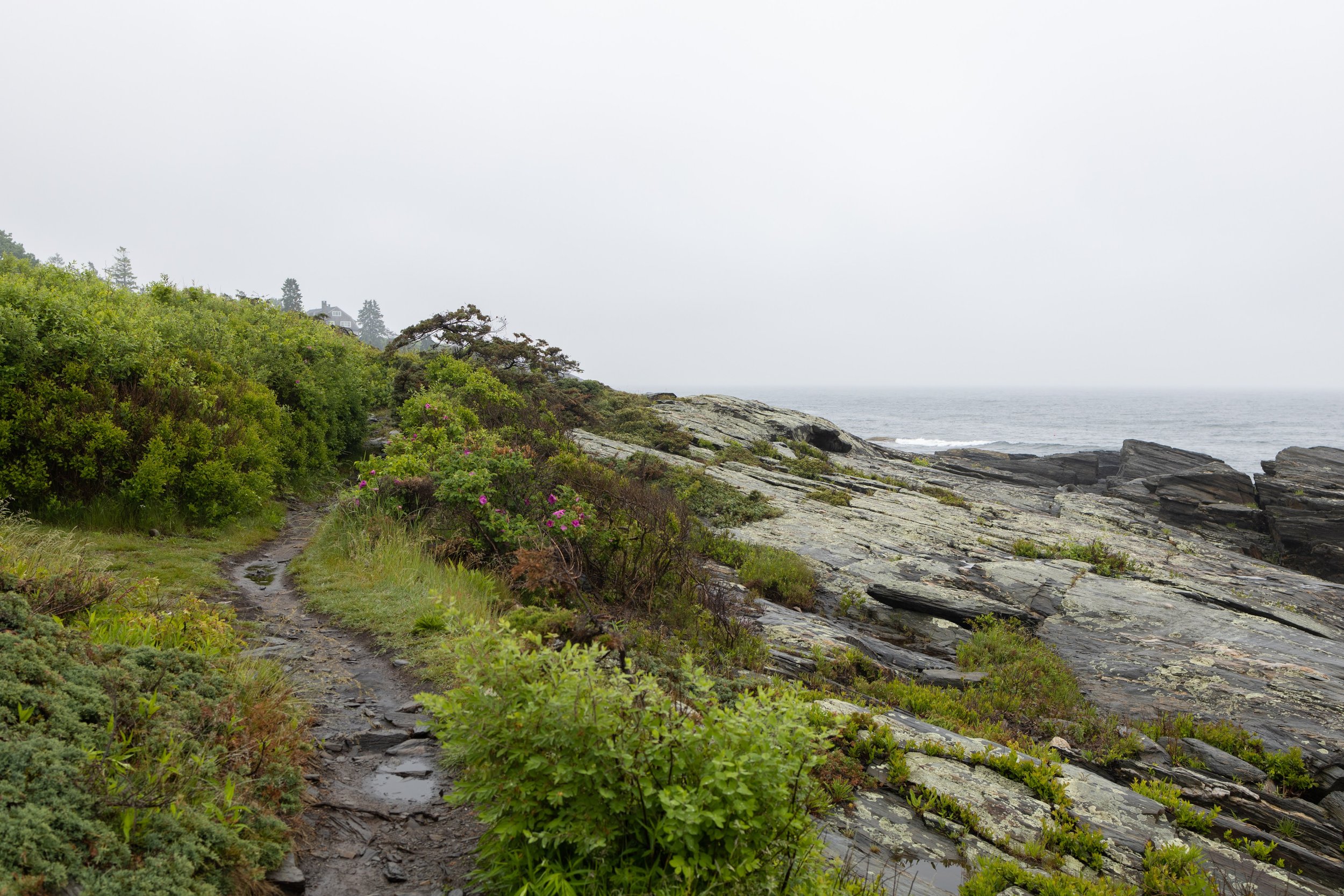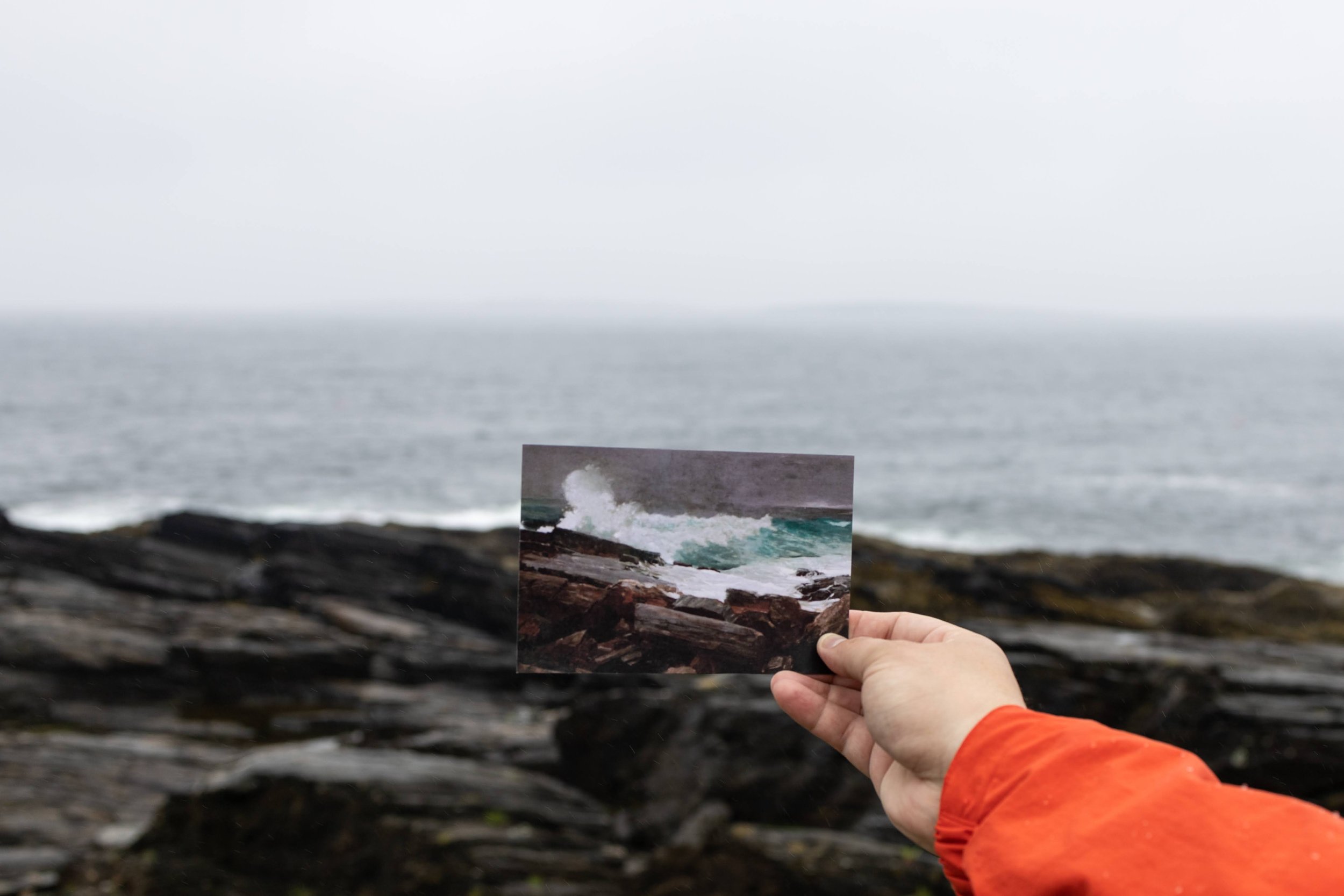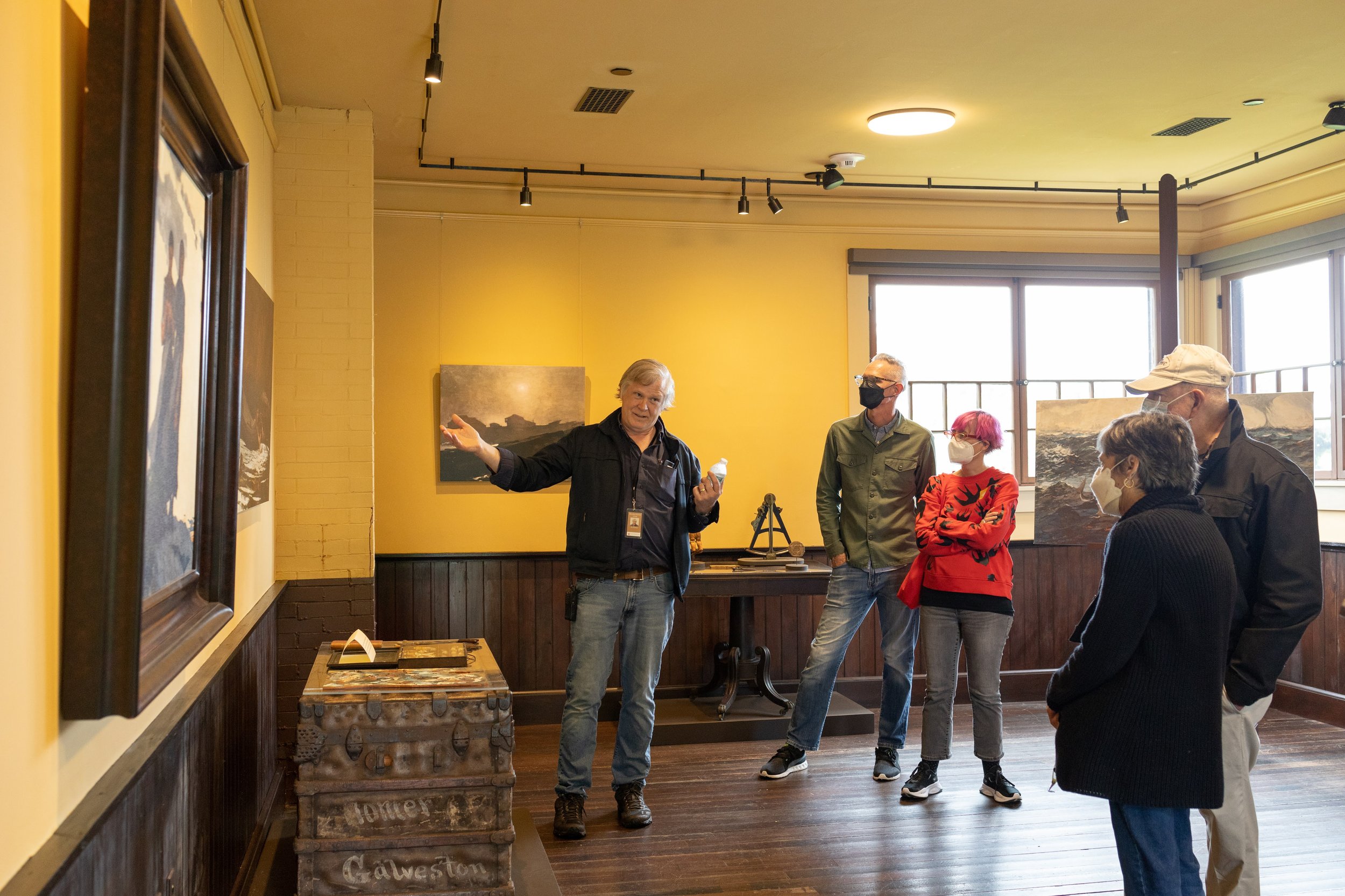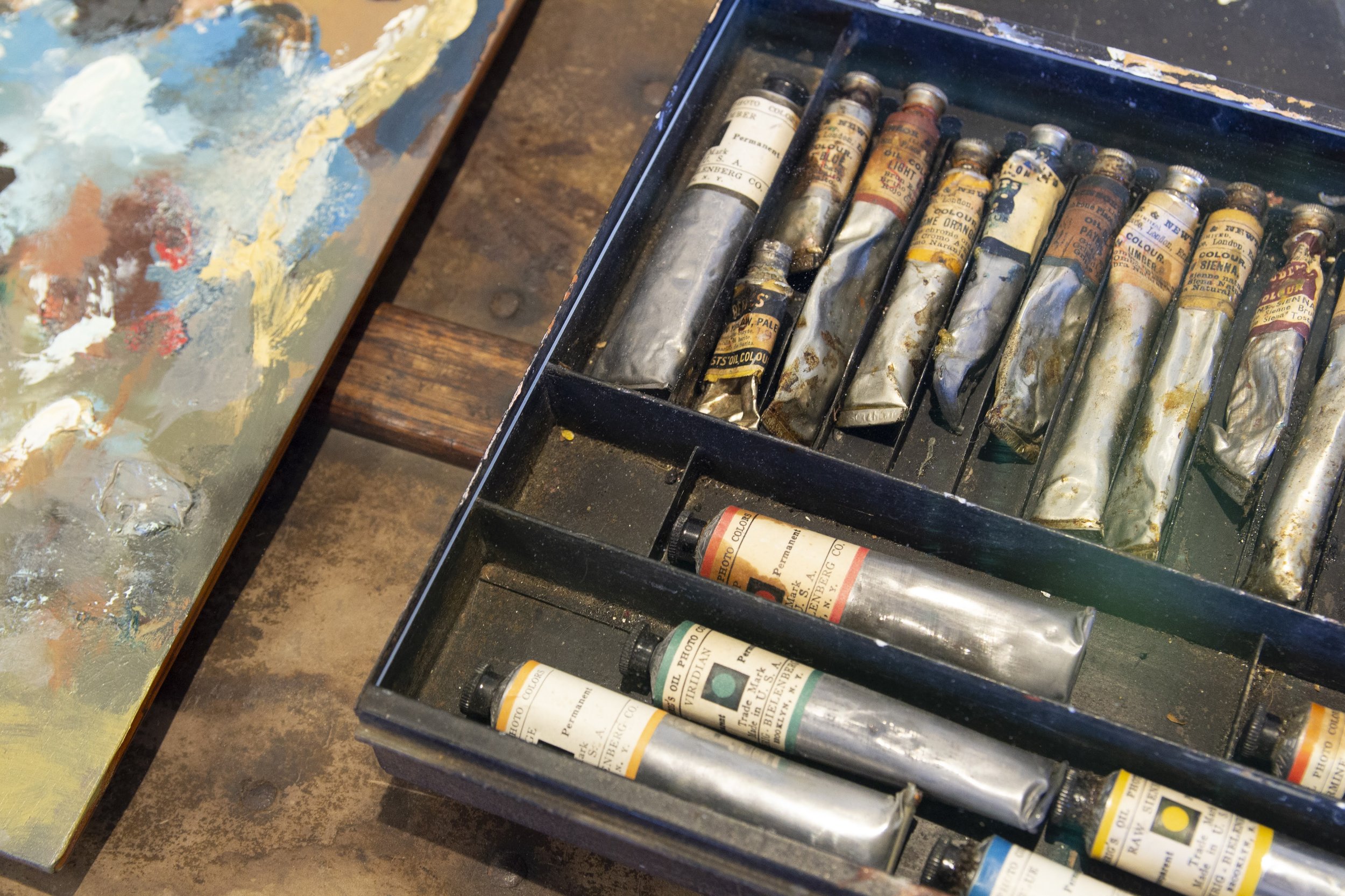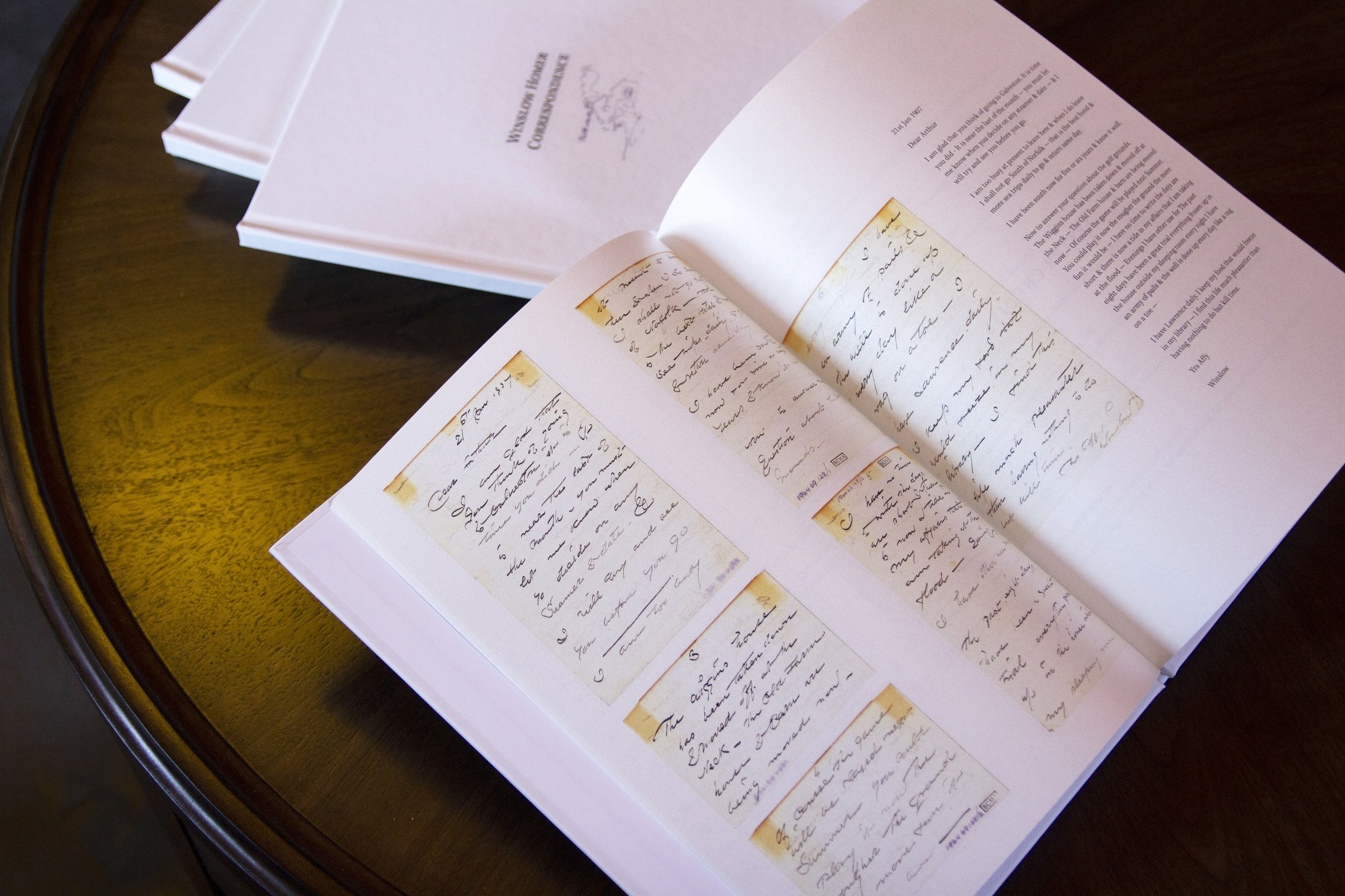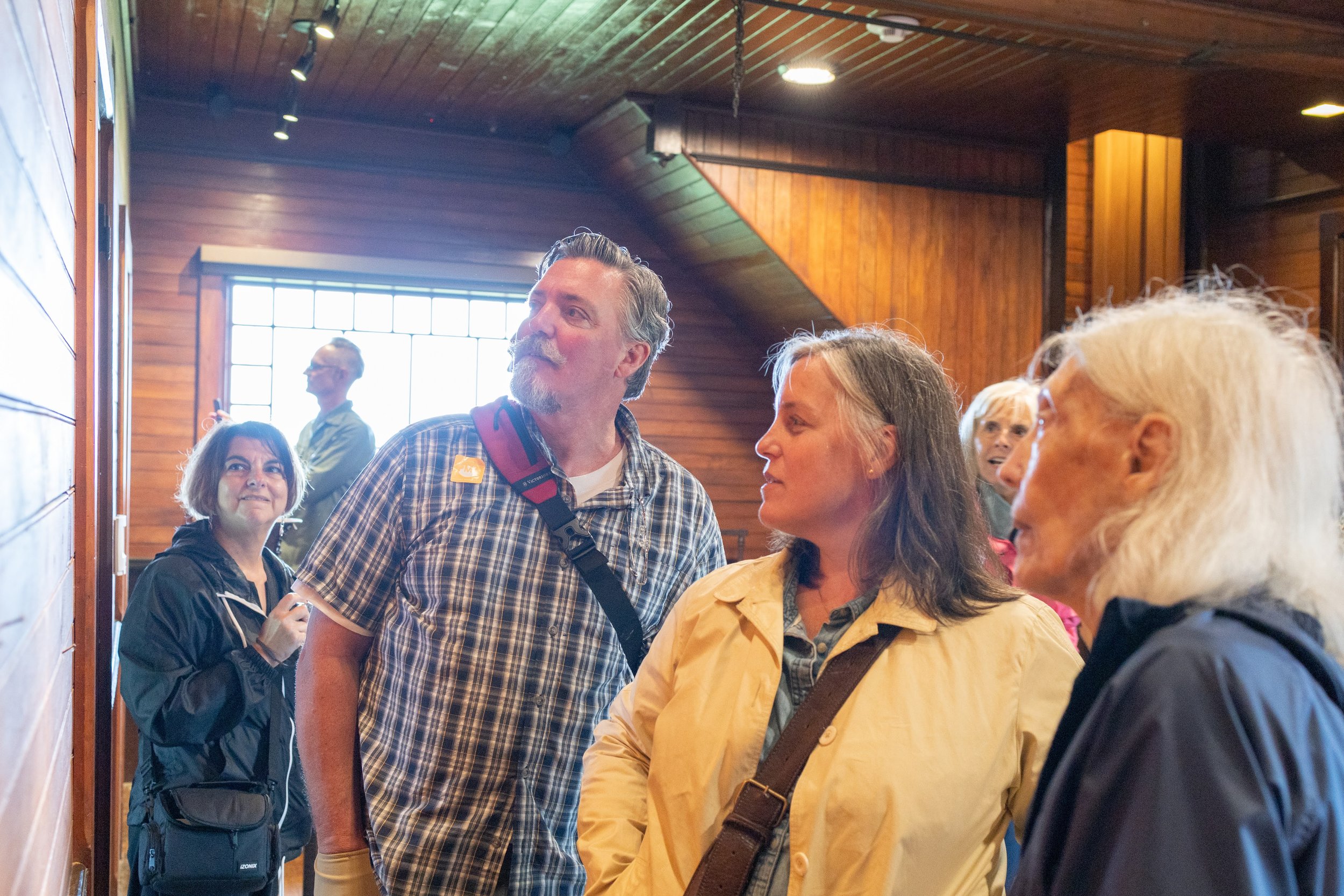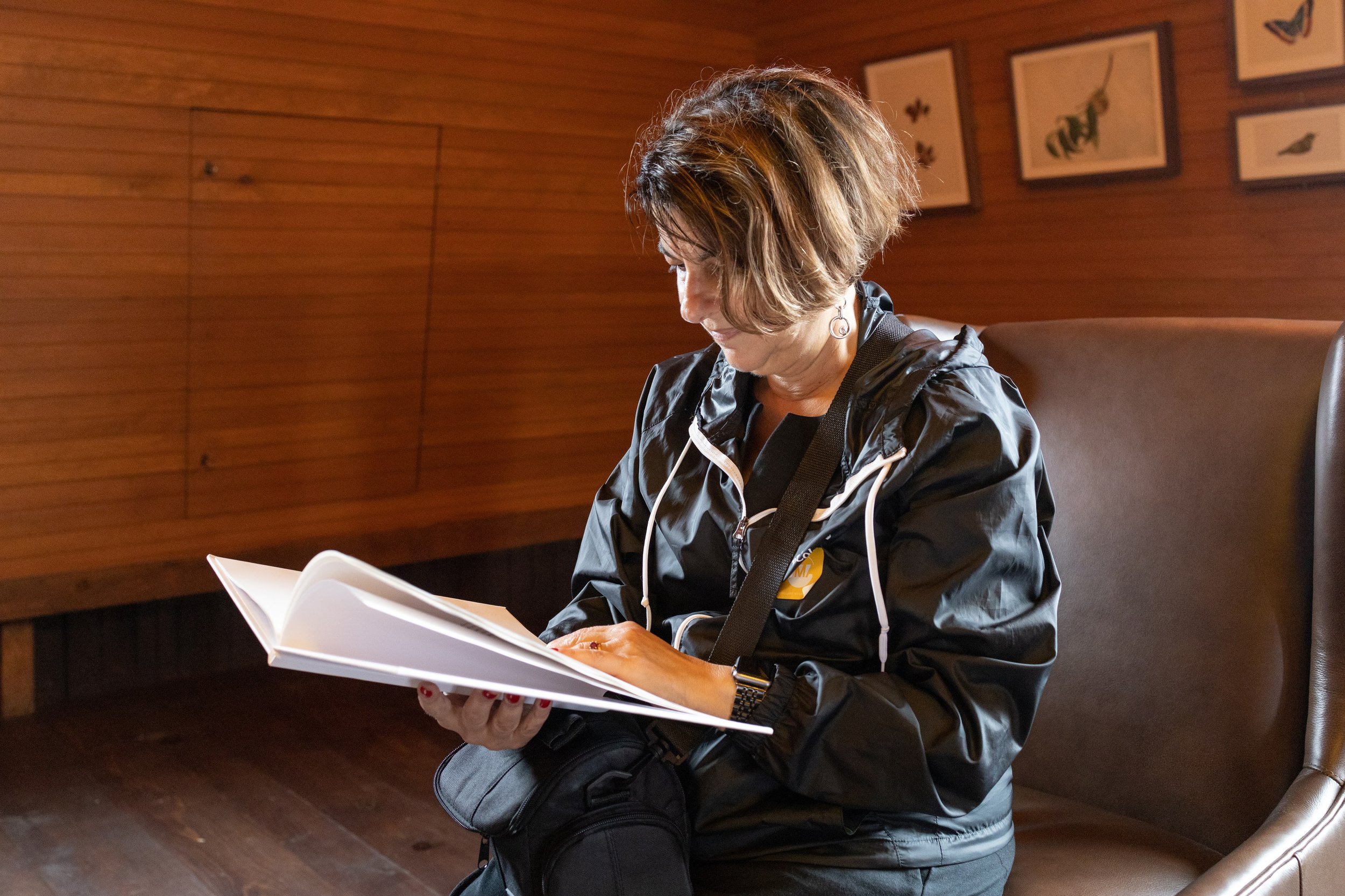A Landmark Glow Up
Behind the Winslow Homer Studio’s Reopening
Tickets are going fast! book your tour for the 2023 season before they’re gone
PMA Members enjoy a 35% discount on Winslow Homer Studio Tour tickets
It’s hard to imagine the PMA without the Winslow Homer Studio, but for the past four years, that’s exactly what happened. Closed in 2019 to enable a major reinterpretation, Winslow Homer’s home and studio on Prouts Neck was poised to reopen in 2020. We all know what happened next.
This summer, for the first time since opening the studio to the public in 2012, we premiered a new Winslow Homer Studio Tour experience—one with modern amenities, interactive activities, and immersive experiences that will help you connect more deeply with the stunning landscape of Prouts Neck and Homer’s artistic legacy. Christian Adame, the Peggy L. Osher Director of Learning and Community Collaboration, sat down with the PMA’s Stephanie Visciglia to share more about what it took to reimagine the studio and bring tours back to Prouts Neck.
STEPHANIE VISCIGLIA: The Winslow Homer Studio has been closed since fall 2019, but is coming back with a new interpretation plan, which is very exciting. How did this all come about?
CHRISTIAN ADAME: We’ve had the studio for over 10 years, and we felt it was time to refresh the way the content is presented. We want the experience to align more with our mission, strategic plan, and how the Learning and Community Collaboration department approaches interpretation. We also wanted to broaden the accessibility of the content and focus the narrative on Winslow Homer’s time specifically at Prouts Neck, not try to cover his whole life biography or career in the span of two hours.
“We tried to remove things that felt didactic and tried to make it more immersive and like a space that Homer would have actually lived and worked in.”
SV: Can you tell me about the process and steps involved in creating the new tour experience?
CA: We gathered data and feedback from multiple sources to inform this reinterpretation. At the museum, we hosted a Cannon Rock session—a gathering of scholars—back in 2018 to think about what a refreshed or reinterpreted Studio could look like. We collected visitor feedback in the workshop space of the museum for about six months and collected around 500 responses. We observed several tours at the Studio in the summer of 2019 and did a collation of how those tours went from the guide perspective, from our perspective, and from the visitor perspective. We wanted to make sure that we were thinking about the space with an informed mindset and a set of data in order to be more responsive to what people want.
We attended the Historic Artists’ Homes and Studios Conference in 2019, which was a chance to see how other historic artist homes and museums were interpreting their spaces. It was an opportunity to get a sense of what was out there and to hone in on our specific opportunities and challenges with the Homer Studio with space and with layout. We did over 35 site visits of those historic artists’ homes and studios to see the spaces but also to talk with our colleagues there and see how they were working through their challenges.
“Our specific challenge is that we don’t have a lot of original objects that survived from Homer’s time at the Studio. How do we tell a rich, full, robust story of this person when we don’t have a lot of surviving objects in our possession?”
SV: What was the biggest takeaway from your experiences at these historic sites, homes, and studios you visited?
CA: It was interesting to see which stories different sites told about the artists. It was really fascinating to see the range of experiences: some of them were so detailed on processes while others were focused on covering the entire life story. The one space we got the most from was Olana, the historic home of the artist Frederic Edwin Church in New York. Church traveled around the world and his house was filled with a bonanza of items that he collected through his travels. As far as your eyes can see, those walls are covered in every direction. Our specific challenge is that we don’t have a lot of original objects that survived from Homer’s time at the Studio. How do we tell a rich, full, robust story of this person when we don’t have a lot of surviving objects in our possession? It was great to see other spaces that have the same challenge, or the opposite challenge, where they have so much and how they manage that. It was fascinating to see how each space adapted to their challenges, but also how they thought about preservation while still keeping things modern and accessible for people. There are so many surviving spaces like this in New England and in our country, which was a great reminder that these are important places to preserve to be able to tell these artists’ stories. These are important things to save.
SV: Besides the space itself, guides are a huge part of the tour experience. Are there any changes to how tours will be led at the Homer Studio?
CA: The guides are undergoing a new training centered around the focused narrative of Homer with the goal to create more visitor‑driven tour experience.
One example is the living space: we have all these new objects on the wall. We’re going to ask visitors to start in that space together, pick an object in that room, sketch it, and write questions about it in their field guide. Then they will come together and talk about what they noticed. Beginning conversations that way rather than someone standing in front of a monitor and saying, “Here’s the life story of Homer.” Flipping that to be more visitor‑driven and responsive to the groups will be a nice and welcome change.
SV: What other changes can visitors get excited about for the new Winslow Homer Studio Tour?
CA: One new addition that visitors can expect is starting their tour in the galleries at Homer’s painting Weatherbeaten to inform where they’re headed physically. We’re centering our conversation on the landscape, so once they get to Prouts Neck, they’ll start the tour by going down to the Cliff Walk to experience the environment where Homer painted these crashing waves.
There are more reproduced artworks and objects on view at the Studio. You’ll see examples of paintings Homer created while at Prouts Neck, including one displayed on a reproduction of his work easel. There will be some areas where you can touch and learn about the different materials and processes that he used at the studio–printmaking, watercolor, and sketching, in addition to painting.
We created an immersive soundscape, which is going to heighten the sensory environment. It’ll bring the space alive with what would have resonated in those spaces–Homer’s dog barking, the sounds of him cooking in the living space, etching into the glass of the window, the sound of paint on canvas, footsteps, the train at Prouts Neck station. We tried to remove things that felt didactic, that felt museum‑y, and tried to make it more immersive and like a space that Homer would have actually lived and worked in.
Everyone is going to receive a printed Field Guide that will include biographical and contextual information about Winslow Homer that people are curious about. There’s a map of Prouts Neck, notes on flora and fauna, and a reproduction of a Weatherbeaten they can hold up when they’re at the site that he painted it. There are also spaces for notes and sketches for part of the tour experience.
Upstairs in the Studio, visitors will be able to think more about Homer in context with a timeline of major events in Homer’s life. An illustrated family tree shows all of Homer’s relationships because they were important to thinking about how we told the story in the space. There’s also going to be a wall showing the photography we have of Homer in that space and his constituencies.
There will be an activity where folks can write letters in correspondence to Homer, reflecting on their experience. Examples of letters Homer wrote to the people in his life will be there and can be listened to aloud on sound sticks. Books on the land itself, geology, and some nautical objects that Homer collected, as well as a land acknowledgment statement, will be there for people to explore.
We’ll have improved visitor amenities–more seating and walking sticks. We’ll have binoculars so people can check out the scenery of Prouts Neck and the oceanscape from the second floor. The new experience allows more time for self‑guiding and free‑roaming around the space and within the Studio itself. There’s a lot of changes, but I think a lot of really exciting ones.
Overall, it’s going to be more immersive, more environmental, and trying to bring Homer’s presence, his making, and the realities of that space a bit more alive when folks move through it.
This reinstallation is made possible by the Berger Collection Education Trust, the Morton-Kelly Charitable Trust, and the Pinkerton Foundation in honor of George J. Gillespie III.
Individual Support:
Janice G. Hunt
Louis Matis and Anthony Calamusa
Installation materials are supported
in part by Lila Hunt Davies and the
Roy A. Hunt Foundation.
The official outfitter of the Winslow Homer Studio Tour Experience
Media support generously provided by our creative video partner, p3.

